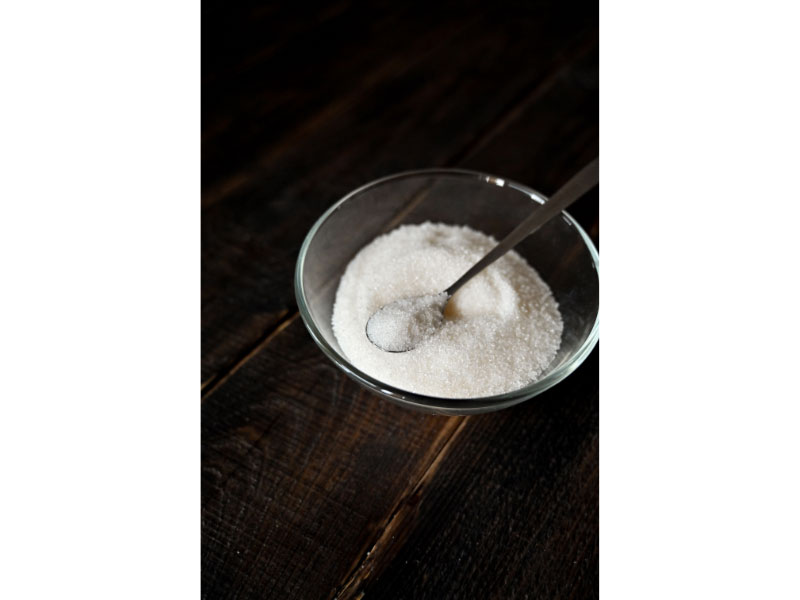
As people seek healthier replacements for their favorite sugary snacks, the popularity of sugar-free sweeteners has been on the rise. One of the most popular sugar alternatives, xylitol, is being used in lots of foods and health products, from dental gum and toothpaste to peanut butter and ice cream.
Unfortunately, this artificial sweetener is highly toxic to pets, potentially causing fatal hypoglycemia and liver failure in dogs. In honor of Pet Poison Prevention Month, learn how toxic xylitol affects cats and dogs and how you can keep your pet safe.
What Exactly is Xylitol?
Xylitol, sometimes listed in ingredient lists as “birch sugar,” “wood sugar,” or “birch bark extract,” is a natural sugar alcohol produced from the bark of birch trees. Xylitol is low in calories, does not raise blood sugar, and helps prevent tooth decay, making it a popular alternative to sugar and a common ingredient in dental gum and toothpaste.
In humans, dogs, cats, and other animals, the pancreas produces insulin, a hormone that helps the body's cells take in and utilize glucose or blood sugar . More insulin is released in response to a rise in glucose, which usually happens after eating a meal or snack. Xylitol does not cause the same spike in blood glucose or insulin release, making it suitable for people with diabetes.
How Does Xylitol Toxicity Affect Pets?
In dogs, xylitol promotes a spike in insulin production, even though it is not "real" sugar. This increase in insulin draws glucose from the bloodstream into the cells. The result is hypoglycemia, dangerously low blood sugar, which can happen within just ten minutes of the dog consuming a food or product that contains xylitol. Liver failure can happen hours to days later.
Symptoms of xylitol toxicity in dogs
- Vomiting
- Weakness
- Tremors
- Loss of consciousness
- Seizures
If you suspect your dog may have eaten something that contains xylitol, seek emergency veterinary care right away. Do not wait to see if symptoms appear, as it can take hours, even days, for a dog to show signs of toxicity.
Is Xylitol Toxic to Cats?
Xylitol is not known to have the same dangerous effect on cats as it does for dogs. However, it's possible that there are not known cases of xylitol toxicity in cats because they are not as likely to eat forbidden foods.
What's more, cats do not have taste receptors to detect sweetness, so they may be less likely to sneak a taste of xylitol-containing products like baked goods or toothpaste.
To be on the safe side, keep foods and dental products that contain xylitol away from dogs as well as cats.
How Much Xylitol is Toxic to Pets?
A toxic dose of xylitol for dogs is around 0.5 grams per 10 pounds of body weight.
The amount of xylitol used in food and health products varies greatly. The average dental chewing gum contains anywhere from 0.2 grams to 1 gram of xylitol. That means just one piece of sugar-free gum could kill a small dog .
When it comes to food, you may find xylitol listed in the ingredients, but you typically won't be able to determine how much it contains. Ingestion of xylitol should always be treated as a life-threatening emergency, even if you're unsure how much your dog has eaten.
Keep Your Dog Safe From Xylitol Products
Xylitol products are becoming increasingly popular, and cases of xylitol poisoning in dogs have more than doubled in the last few years. To keep your pets safe, always be on the lookout when bringing new products into your home.
- Never use human toothpaste to brush your dog's teeth . Xylitol is a common ingredient in human toothpastes, making up to 30% of the product's volume.
- Store all health and beauty products out of your pet's reach . Xylitol is found not only in toothpaste, but also certain nasal sprays, mouthwashes, and mouth sprays, as well as deodorants, lotions, and skin creams.
- Carefully dispose of used gum . If you or your family members use chewing gum, make sure to dispose of it in a garbage can that your pet cannot access. Also, be mindful when walking your dog so they don't pick up littered gum.
- Read ingredients on food labels . Xylitol is commonly used in foods labeled “sugar-free,” “low calorie,” “skinny,” “keto,” “diabetic-friendy,” and “low carb.” While most peanut butter is safe for dogs , some brands may contain xylitol.
- Put away food, snacks, and leftovers . Keep in mind that some dogs can reach or climb onto countertops. Potentially hazardous foods can be kept out of reach in a cabinet or in your fridge.
Even the most attentive, caring for a pet parents have mishaps. While we always hope that our pet will never be poisoned, it's still important to have a plan in case of an emergency. In the event of a poisoning, call the Pet Poison Helpline or ASPCA Pet Poison Control Center or take your pet to the nearest veterinarian or emergency vet hospital.
VISION
Every pet deserves to live a long, happy, healthy life.




































